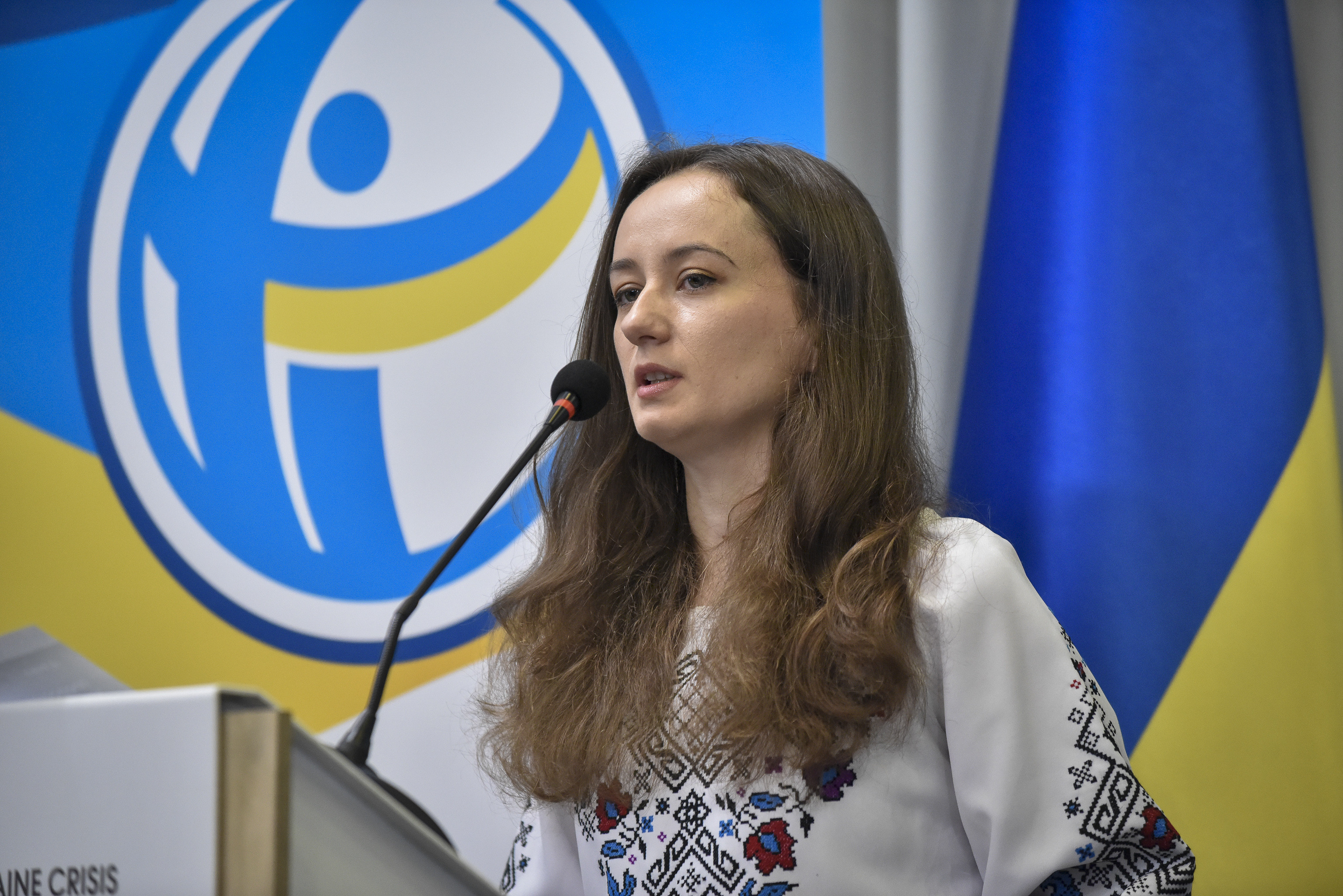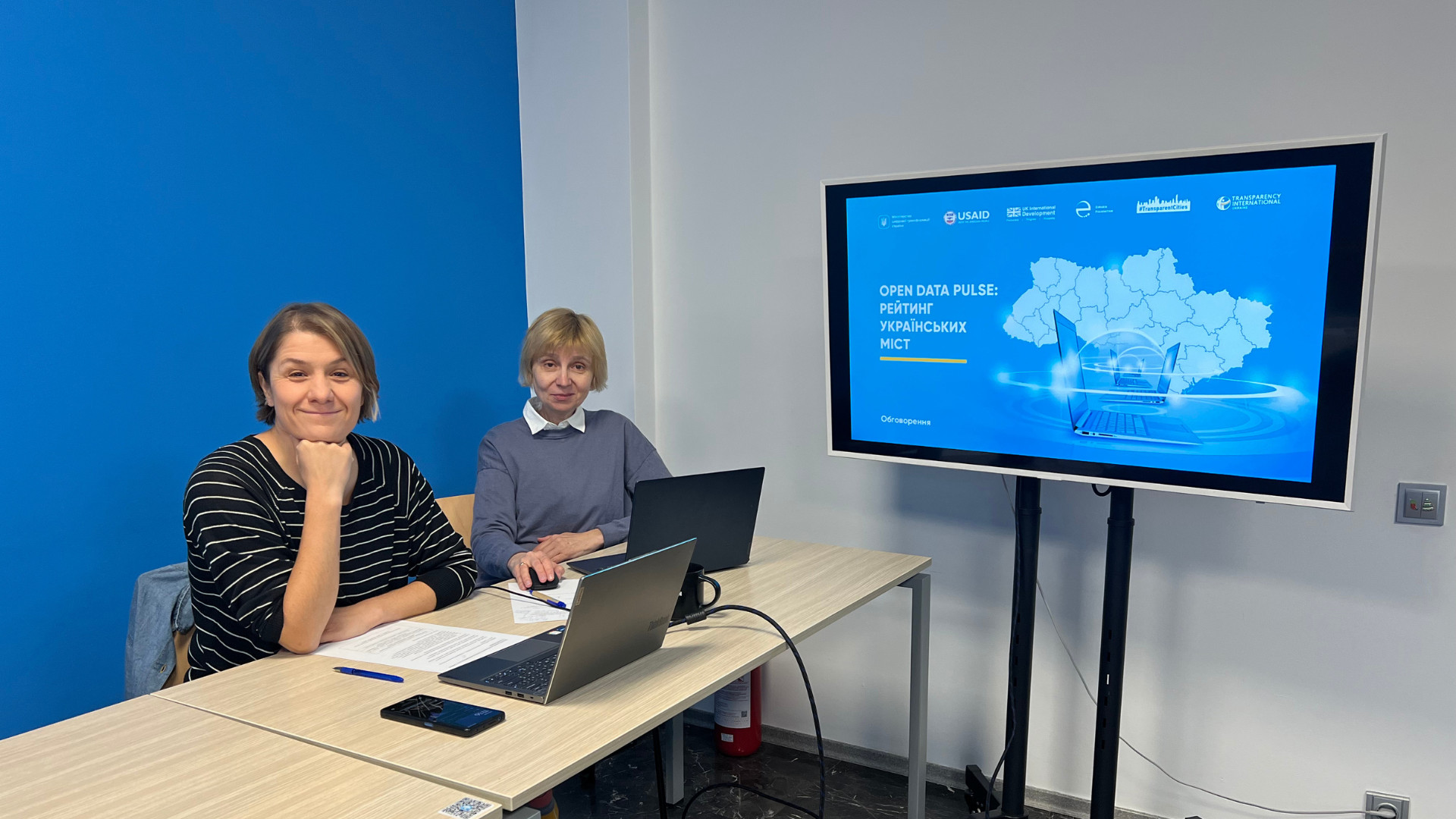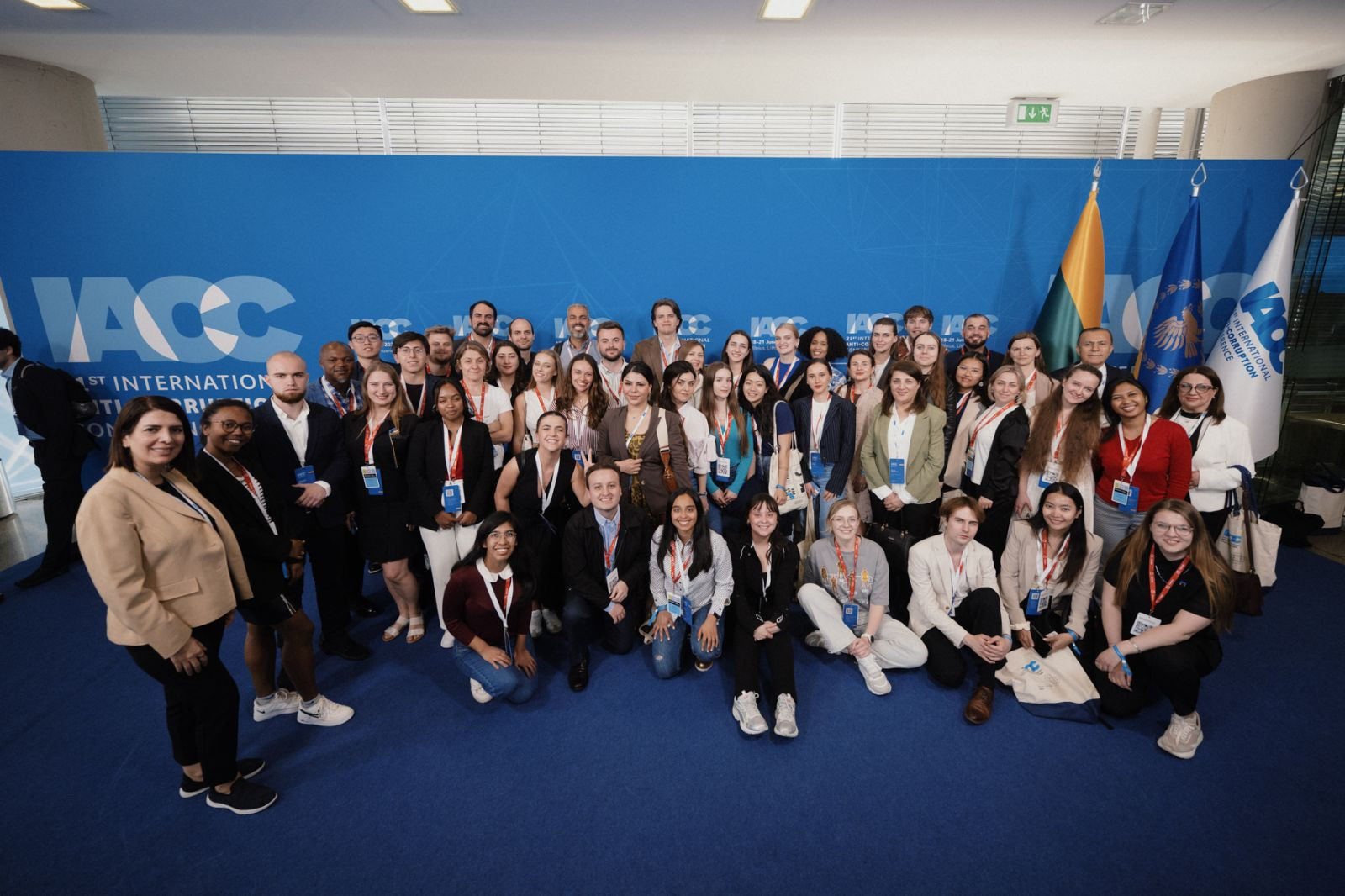In the third year of the full-scale war, our team continued its work on local government research, enhancing transparency and accountability in municipalities, and encouraging cities to adopt best governance practices.
Our goal is to foster a constructive and meaningful dialogue between citizens, local authorities, and the government, promoting high-quality municipal administration, urban development, and effective recovery.
Transparency and accountability of city councils
In the spring, our team presented an extensive study on the transparency of 80 city councils under wartime conditions.
Our analysts assessed 80 cities based on 4,000 indicators. The results revealed that five cities — Dnipro, Drohobych, Lviv, Mukachevo, and Ternopil — were awarded the “transparent” status. Despite the challenges of the war, municipalities made some progress in 2023, yet the majority, 65%, remained non-transparent. Among the 70 city councils that participated in both the 2022 and 2023 studies, 30 improved their transparency levels by 5% or more.
“We see cautious optimism and measured progress. At the same time, there are many challenges we continue to face, but we believe transparency is crucial, despite the war and the circumstances we are currently living through. We must improve our lives and the functioning conditions of our cities — this depends on each of us,” said Anastasiia Mazurok, COO of Transparency International Ukraine, during the presentation of the results.

The second major outcome of the program was the significantly transformed methodology: the return of the transparency ranking for 100 cities. We revisited the areas and evaluation criteria, increased the number of indicators, reinstated public scoring, and updated the list of cities. Some of the cities previously included were occupied, destroyed, in active conflict zones, or had city military administrations with expanded powers. Therefore, now analysts will evaluate 100 municipalities from 21 regions based on 70 indicators across 7 areas.
To develop a high-quality methodology, we engaged nearly 40 city councils and a range of field experts in the discussion.
Open data in local government
In 2024, the program launched a major new 5-year project and, in collaboration with the Ministry of Digital Transformation and Western partners, introduced the Open Data Pulse innovation ranking to assess the level of open data publication across 80 Ukrainian cities from 18 regions.
In the fall, our team presented the methodology that analysts will use to form the Open Data Pulse Ranking. To develop the highest quality assessment methodology, we held numerous discussions with city representatives and open data experts, particularly through the Data+ communication platform. In total, we engaged over 50 city council representatives and more than 10 independent experts.
“Even at the methodology development stage, we identified several issues in the open data field, which we began addressing. We believe that through our analytics and continued advocacy, we can influence national and regional levels, drive legislative and regulatory changes, enhance the management efficiency of local government bodies, and ultimately improve the quality of life for residents,” said Olesia Koval, the Program Manager.

Individual studies and analytics
In addition to transparency and open data, our program also explored decolonization at the local government level. Analysts examined the process of de-Russification of names from March 2022 to May 28, 2024. During this period, the 83 municipalities studied renamed 7,800 toponyms. The cities with the highest number of renamed toponyms include Kryvyi Rih, Kharkiv, Dnipro, Kyiv, Zaporizhzhia, Vinnytsia, Kramatorsk, Kamianske, Poltava, and Odesa.
In 2024, we also investigated how cities are using DREAM, a digital ecosystem designed for accountable recovery management. Our research revealed that, as of May 1, 2024, 67 out of the 80 studied cities had initiated projects within the DREAM system. Altogether, 1,309 projects with a total planned budget of UAH 79.95 billion were planned for implementation in these communities. The largest number of projects were planned in the Irpin, Kharkiv and Mykolaiv communities.
Separately, analysts from the Transparent Cities examined which city mayors reported in 2023, how open the activities of city councils and standing committees were, and how commissions functioned in addressing issues related to compensation for damaged or destroyed property. Also, participatory budgeting.
Capacity-building and cooperation with cities
Simultaneously, we continued to provide new opportunities for local governments to enhance professional growth and deepen their understanding of transparency and accountability. In partnership with TI Lithuania, we organized a study trip for representatives from the city councils of Berezne, Zhytomyr, Korosten, Lviv, and Mukachevo to attend the Transparency School on Integrity in Vilnius. There, local government specialists explored the fight against corruption at the International Anti-Corruption Conference and gained practical knowledge through an intensive program at the Anti-Corruption School.

This year, our team conducted over 30 consultations with city representatives and provided tailored recommendations with specific steps to enhance governance transparency.
Despite the progress made, many challenges and hard work lie ahead. We believe that transparency, accountability at the local level, and public involvement in decision-making are essential for both our European future and our present. As a team, we are preparing for new stages to effectively assist city councils in meeting modern standards, enhancing the interaction between authorities and residents, and progressing together.
We are grateful to the whole team, experts, city councils, and public and international organizations that help build the capacity of cities and bring them closer to residents.